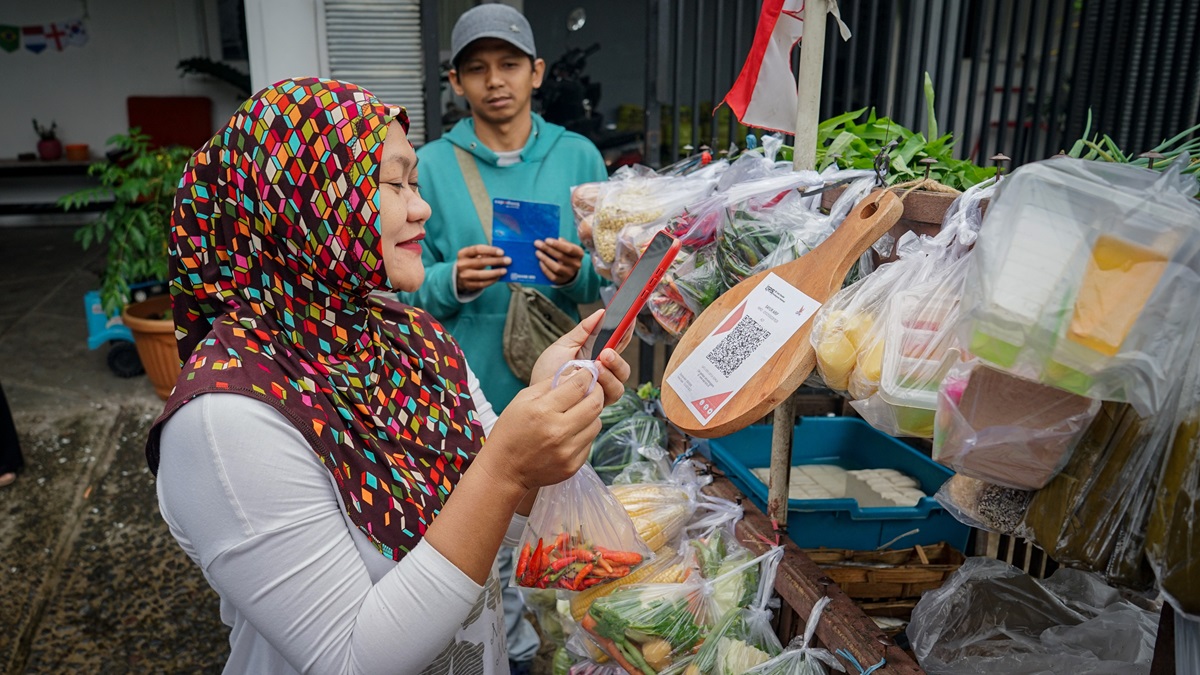In a new report, UN agencies call for stronger policy coordination and capacity-building to ensure digital trade leads to inclusive development in the region.
© Shutterstock/Apry Aje | A customer makes a digital payment at a market in Malang, Indonesia.
Digital trade holds massive promise for the Asia-Pacific region, but there’s still much to do to help vulnerable countries catch up, according to a new UN report launched on 6 December at UNCTAD eWeek 2023.
The Asia-Pacific Trade and Investment Report 2023-2024, produced by UNCTAD, the UN Economic and Social Commission for Asia and the Pacific (ESCAP) and the UN Industrial Development Organization (UNIDO), highlights the region’s strong but uneven performance.
Posting a 9% growth rate in digitally deliverable exports from 2015 to 2022, the region outpaced the global average of 6.8% to reach $958 billion.
But just six economies accounted for 85% of Asia-Pacific’s digitally deliverable exports in 2022. The share for the region’s least developed countries (LDCs) was under 1%.
“The Asia-Pacific region has the potential to be a leader in digital trade, but only if we work together to ensure that no one is left behind,” UNCTAD Secretary-General Rebeca Grynspan said, encouraging political and business leaders to take a people-centred approach.
“Digital trade is not just about technology. It’s about people. It’s about creating opportunities for everyone, regardless of their location or background,” Ms. Grynspan said.
‘Not just a growth engine’
The report, subtitled “Unleashing digital trade and investment for sustainable development”, suggests that a 1% increase in digital trade value is associated with a 0.8 percentage point rise in an economy's real GDP per capita.
Given that the benefits of digital trade are closely tied to internet access, bridging the digital divide in the region is key to ensuring widespread development gains.
While more than 90% of people in the region’s high-income countries use the internet, the share dwindles to just 20% in lower-income countries.
“This disparity underscores an urgent need for action,” ESCAP Executive Secretary Armida Salsiah Alisjahbana said.
“It is imperative that we work together to ensure that digital trade and investment are not just growth engines but also catalysts for inclusive and sustainable development,” she added.
Whole-of-government approach
The report calls for making digital trade and investment policies more inclusive. These include measures to harmonize policy and regulations across borders and strengthen the capacities of LDCs in e-commerce and the digital economy.
It also underscores the need for a supportive regulatory environment, with clear laws to secure online transactions, protect consumer rights and fight against cybercrime.
Additionally, addressing privacy concerns and data security are key to building trust. Customs procedures are crucial for the smooth handling of digital goods.
Progress therefore requires collaboration across ministries and agencies.
“Addressing the social and environmental challenges arising from digital trade and investment is a complex matter, with diverse impacts that no single ministry or agency can manage in isolation,” UNIDO Director General Gerd Müller said.
UNCTAD remains committed to working with partners and countries in the region to strengthen their ability to participate in digital trade and to foster global dialogue on how to ensure more inclusive and sustainable outcomes from digitalization. UNCTAD eWeek is a key part of these efforts.

